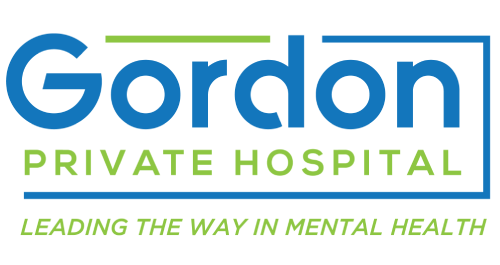
Home . Programs . Day Programs
Day Programs
Day Programs
Gordon Private Hospital is focused on providing quality psychiatric care. We place a strong emphasis on continuity of care for patients post discharge from the intensive inpatient programs. If you are interested in attending a day program you will need to discuss this with your treating Psychiatrist or GP who may provide a referral. You will require private health insurance or agree to self-fund this program. Patients attending day programs are admitted under the care of a consultant psychiatrist credentialed to the hospital.
DBT Day Program
Dialectical Behavioural Therapy (DBT) is an evidence-based skills program that has been shown to be helpful for managing long-standing emotional problems and reduce engagement in self destructive behaviours.
Self destructive behaviours may include deliberate self-harm, suicidality, substance abuse, addictive behaviours, avoidance and dissociation.
Individuals who attend the DBT Skills Day Program will be taught new skills to skilfully manage trigger situations and improve their quality of life. The goal of the therapeutic treatment is to help people to stop using self-damaging behaviours as a means of regulating their emotions and to build more adaptive coping strategies.
Gordon Private Hospital Hospital’s DBT Skills Day Program helps patients improve their functioning in four key areas –
✔ Mindfulness: Mindfulness can help you learn to be in the present and more fully experience your senses. This DBT skill can help you stay focused and increase attentiveness.
✔ Distress tolerance: Distress tolerance skills can help you improve impulse control and better tolerate stressful experiences.
✔ Emotion regulation: This DBT skill will help you to better identify your emotions, improve emotional stability, reduce emotional reactivity, and better manage your emotional health.
✔ Interpersonal effectiveness: Interpersonal effectiveness skills teach strategies to help you ask for what you need, better cope with interpersonal conflict, and improve the overall quality of your relationships.
Mood Disorders Day Program
This day program is beneficial for people who seek greater control over their depression, bipolar disorder or anxiety through a structured application of evidence-based therapies. Our program delivers intensive cognitive behaviour therapy and other evidence-based treatments within a small group format to help participants recover from their mood disorder and stay well. The group places an emphasis on education, skills development and relapse prevention.
Our mood disorder day program helps patients:
✔ Better understand their anxiety or mood disorder
✔ Change unhelpful thinking patterns
✔ Decrease unhelpful behaviours
✔ Increase awareness of triggers
✔ Increase awareness of triggers
✔ Acquire skills to manage stress
✔ Effectively navigate interpersonal relationships
✔ Manage change
✔ Improve sleep patterns
✔ Learn how to keep well
ADHD Day Program
Our ADHD Outpatient Group is designed to provide comprehensive support and strategies to manage ADHD symptoms effectively. This group enables participants to connect with others who share similar experiences and work collectively towards improved symptom management.
Who Should Attend
✔ Individuals diagnosed with ADHD
✔ Those seeking to better manage their symptoms
✔ Anyone looking for support and understanding in a group setting
Benefits of Participation
The ADHD Day Program offers a structured and supportive setting where individuals can learn practical strategies to manage their symptoms and enhance their overall quality of life. It aims to separate the diagnosis of ADHD from common social misconceptions, helping participants overcome feelings of shame.
The program addresses key areas such as attention, memory, and executive functioning, while also covering coping strategies, interpersonal relationships, emotional regulation and essential life skills. Mindfulness is a core component of the program, with principles and skills training integrated throughout. This focus on mindfulness helps counteract attention difficulties, providing a valuable tool for managing ADHD symptoms.
When does it run?
This program is held weekly for 8 weeks duration.
Private Health Insurance - Are you covered?
Let us make it easy for you - Call us to find out whether your current policy covers you.
Addictions Day Program
At Gordon Private Hospital, we believe that addiction should be viewed as a progressive illness and treated with the understanding that progress takes time. We believe that every component of addiction (mental, physical, emotional, and social) should be addressed by specialists that understand each aspect and can make the treatments work holistically together.
In our Sydney addictions day programs, we help our patients accept their addiction, explore its development, confront the ways that we lie to ourselves about the deception, work on raising self-esteem, coping tools, and more.
We also use only evidence based treatments and only treatments that we believe – based on the research and our own experience – that they’ll actively help you overcome your addiction and develop tools to maintain that success in the future.
Our addictions day program helps patients:
✔ Better understand their addictive behaviours / substance use disorder
✔ Change unhelpful thinking patterns
✔ Decrease unhelpful behaviours
✔ Increase awareness of triggers
✔ Acquire skills to manage stress
✔ Effectively navigate interpersonal relationships
✔ Manage change
✔ Learn how to keep well
✔ Develop short and long term goals
✔ Manage urges and cravings
✔ Learn drug and alcohol refusal skills
✔ Learn to communicate effectively
Contact gordon private hospital
How to Register
To join the ADHD Outpatient Group, please get in touch with us by completing our Contact form or phoning admissions on
(02) 9418 1144.
Don't miss this opportunity to take control of your ADHD and connect with others on a similar journey. We look forward to welcoming you to our program!
